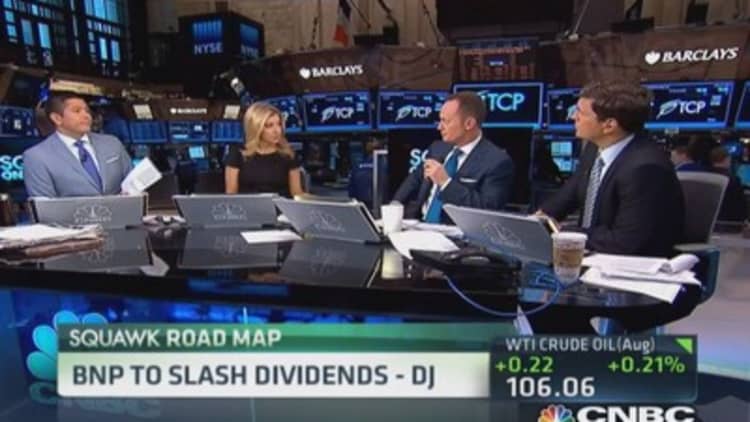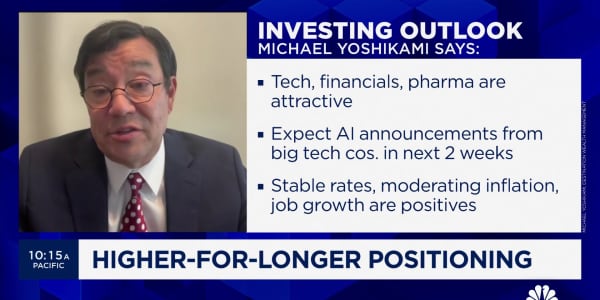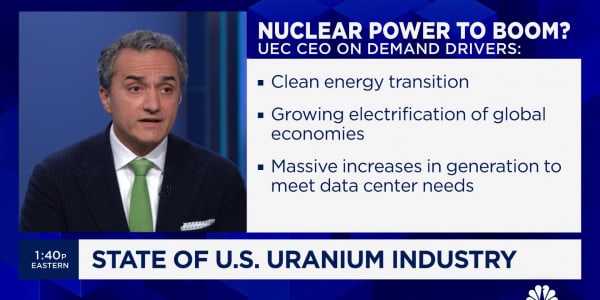Efforts to reform dark pool stock trading likely got a lift from accusations this week leveled against Barclays.
While industry insiders don't see an existential threat to dark pools, many think the high-profile case against the British bank will act as a clarion call for change.
"This Barclays thing is probably the spark that will start to clean things up," said Joe Saluzzi, co-founder of Themis Trading and an aggressive advocate in reforming the current trading climate. "Dark pools got out of control."
In a complaint filed by New York Attorney General Eric Schneiderman, Barclays stands accused of using its private trading system to benefit high-speed traders at the expense of other investors. The civil fraud case also alleges that the bank used marketing materials to falsely portray its system as set up to protect investors from predatory trading behavior.

While the complaint doesn't necessarily get at the fabric of dark pools, it is likely to raise questions about the need for transparency at a time when the Securities and Exchange Commission and other regulators have taken dead aim at cleaning up the trading climate.
Dark pool trading happens away from major exchanges like the Nasdaq or New York Stock Exchange and does not have to be reported publicly. It is responsible for about 40 percent of all stock trading and is used often by high-frequency traders.
Read MoreBarclays launches internal dark pool investigation
The regulatory climate generally has seen SEC Chair Mary Jo White pledge changes to HFT rules for later in the year. In May, the New York Stock Exchange paid a $4.5 million penalty to resolve HFT-related charges the commission brought, and a slew of other parties have had to pay penalties in cases related to trading irregularities.
"Right now it's isolated at Barclays. The case reads like more of a marketing fraud situation as opposed to what was actually going on inside of the dark pool," Saluzzi said. "But it's the first time a dark pool has been kind of dinged."
How far the efforts go to reform dark pools likely will depend on how much Washington regulators are willing to anger Wall Street.
Read More
The SEC, in fact, already has a set of proposed changes at the ready—a 116-page document prepared in 2009 called the "Regulation of Non-Public Trading Interest."
There were three broad recommendations made: Changing the definition of "bid" and "offer" to express "actionable indications of interest" rather than quotes that were never meant to be executed; a "substantial lowering of the trading volume" benchmarks for dark pools before they had to release consolidated trading data; and changing rules that would provide for the "real-time disclosure of the identify of dark pools and other (alternative trading systems) on the reports of their executed trades."
"The proposals are intended to promote the Exchange Act goals of transparency, fairness, and efficiency," the document stated.
However, the changes never took effect. Wall Street firms responding to the proposal applauded the effort, then went on to suggest changes that would gut several of the measures, particularly those related to real-time disclosure of trading activity.
Saluzzi, though, believes the climate is right now to enact meaningful reforms.
Read MoreWhy Barclays is in a pickle: Meet the Martin Act
"I'm actually encouraged. They can get some stuff done, but they've got to have some chops," he said. "Mary Jo White is someone who's definitely not afraid of the industry, and if she thinks something needs to be done she's going to do it."
To be sure, even critics of dark pool behavior, such as Saluzzi, acknowledge the need for their existence. Among other things, nonpublic exchanges allow sellers of large share amounts to do so without causing major market disruptions. Transaction costs also are lower.
Saluzzi even objects to the term "dark pools," because of its sinister sound, much the same way "shadow banking" casts a pall over nonbank lenders. Instead, he prefers "crossing network."
Writing on Friday in the Tabb Forum, Rebecca Healey said the Barclays case presents an opportunity to shore up the industry's reputation.
"Concerns over dark pools are nothing new," she said. "Rather than getting hung up on the accusations, however, we now have the opportunity to address substandard behavior as well as the speculation and dispel the myths surrounding all dark pools."
Read MoreHigh-speed trading firms not sweating new regs
Healey advocates investors—particularly those at the institutional level that rely on dark pools—educate themselves about choice among trading venues as the landscape gets more complex. On the specific Barclays charges, she said investors shouldn't be making decisions in the first place based on marketing materials.
"The underlying activity of individual pools needs to be understood and continually reassessed," she wrote. "Buy-side traders have to educate themselves as to what is happening, where. If the buy side abdicates measurement responsibility, it becomes much harder to take its claims of incredulity seriously—you can't have your cake and eat it too."
—By CNBC's Jeff Cox.







